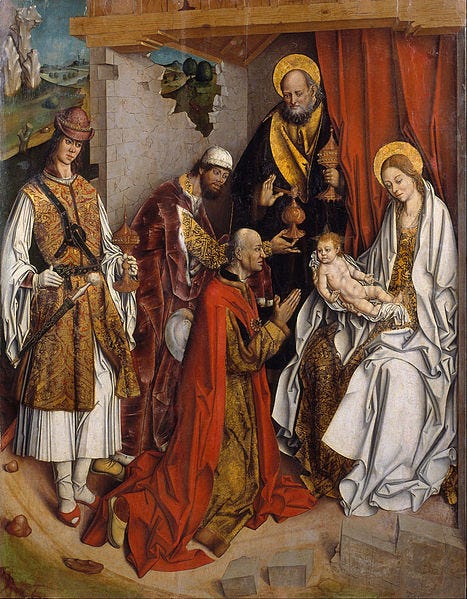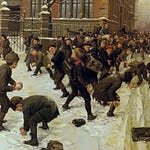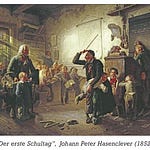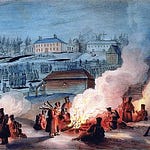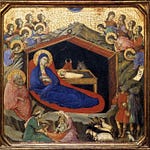Our Christmas offers are still available at Word & Song!
Click on the button below to learn more.
I’ve chosen our Word of the Week, show, in honor of the feast, the twelfth day of Christmas, Epiphany, a word I wrote about some time ago. When I was a boy, most of the people who put up Christmas lights kept them going at least until January 6, which we knew as “Russian Christmas,” when the Russian Catholics in our area would be celebrating the birth of Christ, according to the old Julian calendar. But January 6 was also identified in many of the ancient churches in the east as the great day of celebration, not when Jesus was born, but when he showed himself to the world as represented by the three men from the east, who followed some mysterious luminary in the heavens, or some odd asterism or planetary conjunction. The Persians were stargazers par excellence. We don’t know, by the way, the origin of the Persian word that entered Greek as magus, but it may be related to other Indo-European words that have to do with power or greatness: Latin magnus, Greek megas, English might.
But to return to show: its Old English ancestor, sceawan (pronounced SHEH-uh-wahn) meant to look at, to gaze at, as its German cousin still does: schauen. Sometime in the late Middle Ages, the sense turned about, so that it came to mean to cause somebody else to look at you, to present something to be seen. I might make sense of it this way. Think of the word behold. If we take it literally, it suggests that you have hold of something; it’s in your keeping. Now imagine that you hold this precious object before your eyes, to look upon it with love or appreciation. All at once, your possessing becomes an act of distancing and then re-possessing: you are beholding it. Eventually, the sense grew that you could behold what was not yours at all, what might be in the very heavens above, but by that act of love and wonder you allow it to enter your soul, as when the angel says to the shepherds, “Behold, I bring you good tidings of great joy.”
People show things all the time; most especially they show themselves. The higher animals, when they are courting or defending territory, do so instinctively: think of bright red Mr. Cardinal, singing loudly for the benefit of Mrs. Cardinal, or think of the peacock with his gaudy fan full of stars and eyes. But we’re warned not to make shows of ourselves. You can be a sincere hypocrite if you do what you say, but you do it in order to be seen by other people, as if you are putting yourself on stage. Still, it’s good to look upon this world of creatures, including that odd bird — not the cardinal or the peacock, but the odd bird called Man. Right reason tells us that they are objects of wonder. And then comes the holy Child in Bethlehem.
What the Magi expected when they found the mother and child, I don’t know, but I suppose that their precious gifts, each with a symbolic meaning which they themselves may not have fully grasped, tell us that they left the child with full hearts. Jesus had appeared in the flesh already; he had been seen by the shepherds, he had been taken to the Temple to be circumcised, and he had no doubt been fussed over by many a kinsman and friend. But he had not been shown to the world, that is, to the nations. There are mysterious prophecies all through the Old Testament, especially in Isaiah, that suggest somehow that the whole world will come to Mount Sion, caravans of camels, kings and princes, traders from far over the mountains and the seas. That is the meaning of the Feast of Epiphany, with the Greek word epiphanes meaning to show oneself, to make oneself visible, to shine forth.
Here I’ll mention one Greek word that is a cousin of our word show, and it likewise contains in itself the meanings of beholding something and being worthy of being beheld. It’s the word kydos (transcribed in English as kudos), meaning glory. That’s singular, by the way, not plural. It’s now used as a word of congratulation. So then, all kudos to the Holy Child in the house in Bethlehem, who showed himself in the darkness of the world to the three men who came from so far away, merely to behold him, and to give him their gifts.



